In 1993, sci-fi author Vernor Vinge predicted that by 2030, civilization would face what he termed ‘the singularity’ — a point of no return in which artificial intelligence develops the ability to eternally improve itself.
Vinge cautioned this tech explosion could lead to the end of human civilization as we know it, and scientists like Stephen Hawking have agreed. From tales of micro-computers run amok to romances between man and machine, these ten books about the robot revolution can prepare you for an A.I. uprising, whatever it may look like.

Burn-In
This new hard sci-fi thriller was co-authored by P.W. Singer and August Cole, the team behind the acclaimed military sci-fi novel Ghost Fleet.
Singer and Cole are both futurists and international security experts. In Burn-In, they bring their real-world knowledge of the dangers and advantages of artificial intelligence to an action-packed story set in near-future Washington, D.C..
Special Agent Lara Keegan is assigned to work with an experimental high-tech police robot, TAMS. Their union is rocky—and the stakes are raised when the pair discover a techno-terrorist cell poised to plunge America into anarchy.
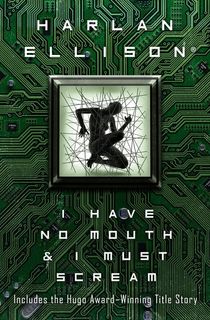
I Have No Mouth & I Must Scream
The Hugo Award-winning titular story in this anthology of Harlan Ellison short fiction is set in an unsettling future where humanity has been all but eradicated by A.I.
Only five people remain alive. Four men and one woman are tortured physically and mentally by an Allied Mastercomputer, and can't even look forward to death as a release.
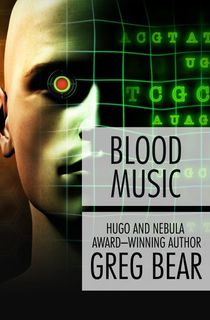
Blood Music
This cyberpunk thriller from hard sci-fi author Greg Bear centers around scientist Vergil Ulam, who refuses to stop working on a potentially-dangerous new breakthrough in biotechnology.
Ulam has discovered how to inject microscopic bio-computers, or noocytes, directly into his bloodstream. When the noocytes develop sentience and multiply exponentially, Ulam and the world are changed forever.
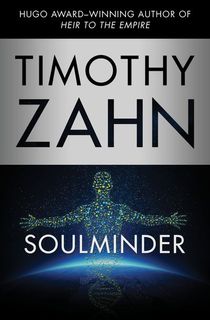
Soulminder
When Dr. Adrian Sommers’ son dies following a prolonged period in the hospital, the bereaved father is determined to find meaning in his grief.
His daring invention, the Soulminder, could prevent future tragedies by preserving a person’s soul while their body heals.
But not everyone who uses the Soulminder has pure intentions, and soon Sommers sees the dark side of his creation when the new soul technology is used as a weapon of war.
RELATED: 13 Must-Read Timothy Zahn Books

Do Androids Dream of Electric Sheep?
The inspiration for the Blade Runner film series, Philip K. Dick’s Do Androids Dream of Electric Sheep? is a thoughtful exploration of what it really means to be sentient.
In the war-ravaged future of 2021, androids blend seamlessly into what remains of human society. Bounty hunter Rick Deckard has the euphemistic job description of ‘retiring’ androids. But retirements are complicated when androids appear, as the quote goes, more human than human.
RELATED: 12 Cyberpunk Books About Console Cowboys Everywhere
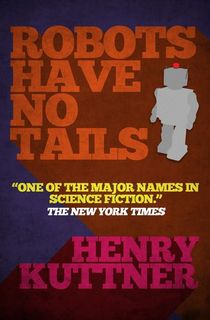
Robots Have No Tails
Robots Have No Tails is a lighthearted collection of stories featuring Galloway Gallegher, an alcoholic scientist who conceives of his best inventions when drunk.
Unfortunately, Gallegher’s feisty robot assistant is no help when it comes to understanding the creations his master made under the influence.
RELATED: 13 Sci-Fi Short Stories You Can Read During Your Lunch Break

Ancillary Justice
Told from the point of view of a ship’s AI, Ancillary Justice is the multiple award-winning first novel in Leckie’s Imperial Radch Trilogy.
Breq has only ever known life as a warship artificial intelligence, connecting the powerful minds of countless soldiers. Now, she’s trapped in a frail human meat sack — and hungry for revenge.
RELATED: 10 Mind-Bending Hard Science Fiction Books by Women
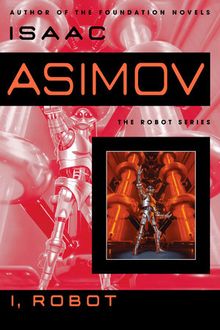
I, Robot
This iconic anthology from Isaac Asimov collects short stories and essays about man’s relationship to machines.
From “Robbie,” in which a child develops a profound bond with their robot nanny; to “Reason,” in which a robot nicknamed Cutie proclaims its superiority over humanity, this seminal text will forever impact the way you view tech.

2001: A Space Odyssey
Written at the same time as the Stanley Kubrick movie adaptation, the novelization of 2001: A Space Odyssey by Arthur C. Clarke is the first in a four-book series. Thanks in part to Kubrick's film, the story and imagery of 2001 have become iconic.
When it's revealed that a strange structure discovered on the Moon is transmitting a signal to Saturn, the crewed spaceship Discovery is dispatched to investigate. The crew is assisted by HAL 9000, a sentient computer whose control over the ship—and its passengers—soon proves a double-edged sword.
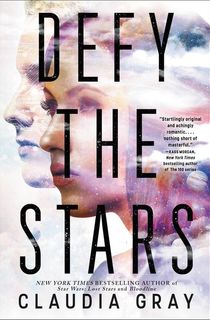
Defy the Stars
From the tin man of Oz searching for a heart, to human-Cylon romances in Battlestar Galactica, speculative fiction is fascinated by robots' capacity for love.
The Defy the Stars Trilogy by Claudia Gray is a compelling space opera about the connection between Noemi Vidal, an insurgent determined to protect the planet Genesis; and Abel, a constantly-evolving machine.
The two should be enemies, but when circumstances throw them together, they both question what they’ve been taught about who they are.
This post is sponsored by Houghton Mifflin Harcourt. Thank you for supporting our partners, who make it possible for The Portalist to celebrate the sci-fi and fantasy stories you love.
Featured photo: Franck V / Unsplash





